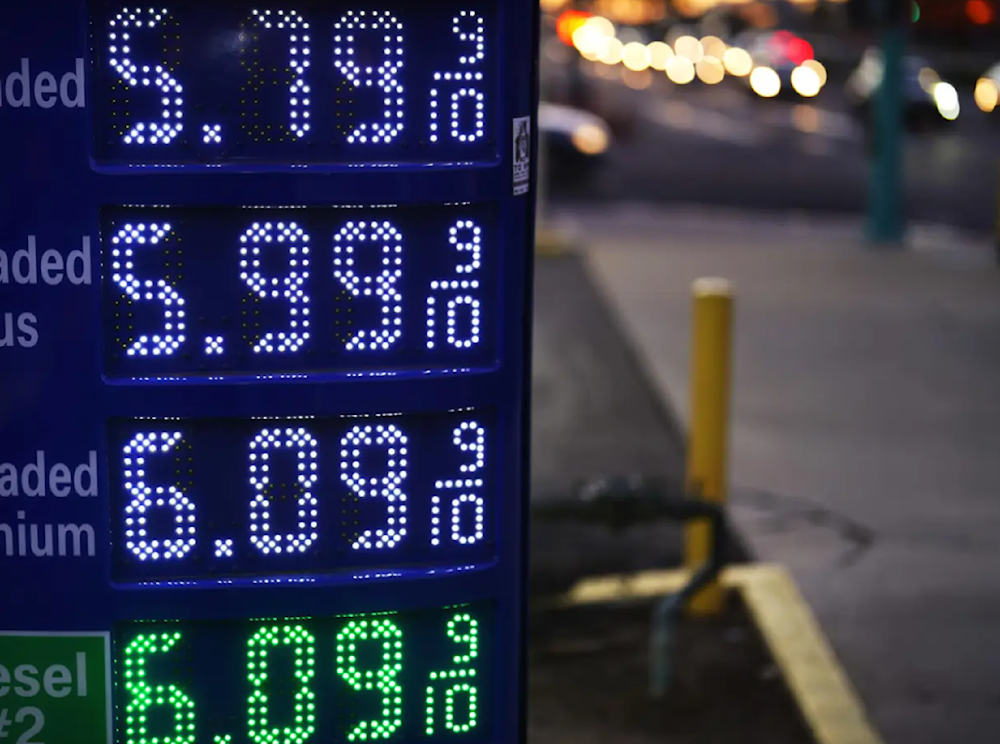Oil surges over 9% after Israeli strikes on Iran raises supply fears
Oil prices soar after Israeli strikes on Iran, sparking fears of Middle East supply disruption and sending global markets into turmoil.
-

Oil prices surge by over 9% as Israeli strikes on Iran raise fears of broader conflict and potential disruptions to oil supplies across the Middle East (AP)
Oil prices soared more than 9% on Friday, reaching their highest levels in nearly five months after the Israeli occupation launched strikes on Iranian territory, raising fears of a broader conflict in the Middle East that could disrupt global oil supplies.
Brent crude futures climbed $6.29, or 9.07%, to $75.65 a barrel by 03:15 GMT, after touching an intraday high of $78.50, the highest since January 27. US West Texas Intermediate (WTI) crude surged $6.43, or 9.45%, to $74.47 after reaching a peak of $77.62, the strongest level since January 21.
These were the largest single-day gains for both contracts since early 2022, when the Russia-Ukraine war sent global energy markets into turmoil.
The Israeli entity announced that it had struck Iranian nuclear sites, ballistic missile facilities, and military command targets on Friday. It also warned that this marked the start of a sustained military campaign intended to prevent Tehran from developing nuclear weapons.
“This has elevated geopolitical uncertainty significantly and requires the oil market to price in a larger risk premium for any potential supply disruptions,” analysts at ING, led by Warren Patterson, wrote in a note.
While there is no immediate evidence of damage to oil infrastructure, traders say the fear of escalation is enough to jolt energy markets. "It's too early to tell, but I think the market is worried about shutting off of the Strait of Hormuz," one Singapore-based oil trader said.
Analysts warn of possible disruptions in Strait of Hormuz
The Strait of Hormuz, through which roughly 20 million barrels of oil flow daily, remains one of the world’s most critical oil chokepoints. MST Marquee energy analyst Saul Kavonic warned that while the current market impact is speculative, any retaliation by Iran targeting infrastructure or restricting transit through the strait could cause serious disruptions.
“In an extreme scenario, Iran could hinder up to 20 million barrels per day of oil supply,” Kavonic said, noting that this would require a major escalation in hostilities.
Iran’s Leader Sayyed Ali Khamenei has vowed “harsh punishment” in response to the Israeli occupation’s attack, claiming that several Iranian military commanders were killed in the strikes.
Traders await Iran’s retaliation as US signals non-involvement
US Secretary of State Marco Rubio described the Israeli strikes as a “unilateral action", emphasizing that Washington had no role in the attacks.
Rubio also warned Tehran not to target US interests or personnel in the region, as tensions threaten to spill over.
“Iran has announced an emergency and is preparing to retaliate, which raises the risk of not just disruptions but of contagion in other neighbouring oil-producing nations too,” said Priyanka Sachdeva, senior market analyst at Phillip Nova.
With this crime, the Zionist regime has prepared for itself a bitter, painful fate, which it will definitely see.
— Khamenei.ir (@khamenei_ir) June 13, 2025
Although US President Donald Trump has reportedly resisted direct involvement, analysts warn that even limited US participation could further escalate the conflict and rattle markets.
Broader markets sink as investors flee to safe havens
As oil surged, equity markets across Asia plunged. US stock futures led the selloff as investors fled from riskier assets into traditional safe havens, including gold and the Swiss franc.
The volatility comes amid fears that the Iran–"Israel" conflict could evolve into a regional crisis, threatening not only oil shipments but also the broader stability of energy markets and global trade.
The oil market’s dramatic response underscores the fragility of global energy security in the face of mounting geopolitical flashpoints, particularly when they emerge in a region central to the world’s fuel supply.

 4 Min Read
4 Min Read









